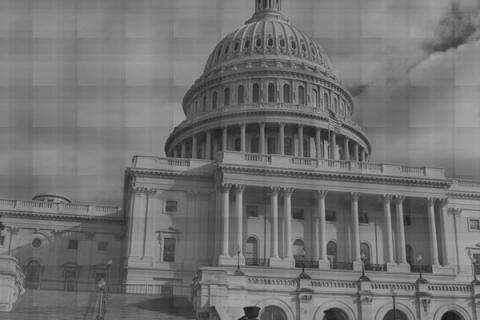This week, US officials discovered a 600-yard drug tunnel linking Tijuana and San Diego along with 25 tons of marijuana. Although close to 75 tunnels along the US-Mexico border have been discovered in the past few years, authorities say few were as fully operational as this 4-by-3-ft corridor. This latest bust has reignited the international debate on the merits of drug prohibition as the never-ending flow of illegal substances from Mexico continues unabated.
John Morton, director of US Immigration and Customs Enforcement, which leads the multi-agency San Diego Tunnel Task Force, reported to the Los Angeles Times that increased responsiveness and cooperation from Mexican authorities, who seized some 4 tons of marijuana in a warehouse on their end, were to be commended. "I can promise you there are some very unhappy people in the cartel," said Morton.
Unhappy indeed, but surely not despairing. Even though 105 tons of marijuana were confiscated by Mexican authorities late last month in what Mexico's national security spokesman Alejandro Poire called “the largest seizure in the country's history of marijuana prepared and packed for sale and distribution,” the cartels carried on with more reason to be preoccupied with Tuesday's American elections than with operational glitches such as these.
The seizure comes a day after the mid-term failure of California's controversial marijuana decriminalization measure, Prop. 19, an initiative which was touted as an end to the archaic system of prohibition. Many experts and Latin American leaders agree that even drug busts as big as Wednesday's do little to end the bloodshed along the border and are disappointed California voters didn't take the first step in ending the War on Drugs.
“Weapons, cash, and drug seizures, as well as top arrests of drug traffickers, are always touted by the government as signs of success,” wrote Sara Miller Llana, Latin America Bureau Chief for the Christian Science Monitor. “While they are no doubt good news – and definitely give the government, normally battered by the ongoing violence in Mexico, a PR boost – they do little to impact the overall structure of criminal organizations, experts say."
The United States is the primary consumer of Mexican narcotics and the only way to get rid of drug-related violence is to eliminate cartel profits from American citizens, say those opposed to drug prohibition, and marijuana criminalization in particular.
Mexican President Felipe Calderón opposed Prop. 19, claiming it would help line drug traffickers' pockets. Colombia’s President Juan Manuel Santos agreed. Their reasoning that decriminalization would lead to increased use and an expanded drug trade fails to account for the findings of several sociological studies including this one. It's safe to say they're being swayed by the political pressures of their respective offices.
"It's significant that the two presidents who have come out strongly against legalization, Calderón and Santos, are presidents who have received a combined total of nearly $9 billion from the United States government to fight the drug war in their countries," says Laura Carlsen, director of the Americas Program for the Center for International Policy in Washington.
She is referring to funding from Plan Colombia and the Merida initiative. "They have also received a significant amount of political support for their presidencies as a result of those policies."
On the other hand, Calderon's predecessor, Vicente Fox, has been a staunch advocate of Prop. 19 and ending prohibition. He's not the only former leader of a drug-war-torn country to support drug policy reform:
"Cesar Gaviria, who led Colombia from 1990 to 1994, called the war on drugs a failure last year and advocated for a shift in policy away from prohibition," writes Nacha Cattan in a recent editorial. "Mr. Gaviria was joined in his efforts toward decriminalization by another former Mexican chief executive, Ernesto Zedillo, and former Brazilian President Fernando Henrique Cardoso."
Though former politicians feel they have more freedom to speak their minds on prohibition, it's the status quo which prevails throughout Latin American officialdom. The line being toed is perhaps best defined by Laura Chinchilla, current president of Costa Rica, when (according to the Associated Press) she called Prop. 19 "a contradictory message in the anti-drug fight.” Decriminalization of marijuana in California "would put at risk, sincerely, the consistency of the anti-drug fight," she said. "If we think that each country on its own is going to successfully face this problem, we're very wrong."
But what message are Chinchilla, Calderon and Santos sending here – that the deaths of over 28,000 people caused by 4 years of wildly unsuccessful guerrilla war is justifiable solely because of the organization and consistency of the military campaign? Are these leaders so deluded as to ignore history and reason to see only the means as ends in themselves? If the point is to break-up cartels and reduce consumption, following a policy that is demonstratively counterproductive to those aims will never lead to success, no matter how consistent its enforcement is.

